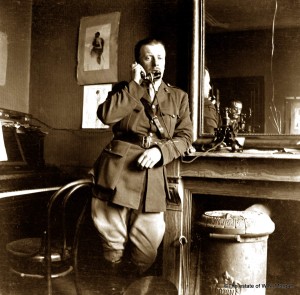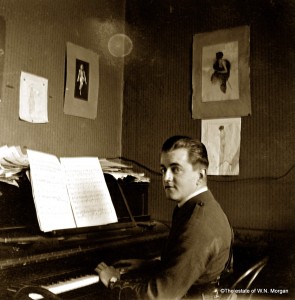My research focuses upon prostitution in the First World War, and a little known aspect of the life of the Tommy – his visits to brothels.
British soldiers were able to visit legalised brothels or maisons tolérées in France when they were behind the frontline, and judging by the available statistics, or rates of venereal disease, many did indulge.
I have focused upon what the soldiers themselves had to say about these visits, in their diaries, letters, memoirs and oral histories. Some wrote just one sentence, others wrote pages, or discussed at length in interviews, what they experienced or what they observed in regards to brothel visits. I’ve also drawn upon government papers, which refer to prostitution in the First World War. The government concerned itself with soldiers’ sexual activity because often these visits could threaten the health of soldiers, as they were left vulnerable to venereal disease. This behaviour also offended the moral or religious sensibilities of certain groups, who, in turn, lobbied the government to ban soldiers’ brothel visits.

An officer (Lt Morgan) makes a phone call from inside a ‘maison close’ (brothel). Credit: Jo & Fran Gluck
My research into prostitution in the First World War provides a more rounded picture of life on the Western Front. Soldiers’ sexual activities are often ignored in military histories, but they were a common part of many men’s experience of war. Prostitution in the First World War also tells us much about how these men coped with trench warfare. Finally, these visits to brothels offer us a window into conceptions of acceptable masculinity during this era.
I regularly brief journalists, television and film-producers on my research into prostitution in the First World War. For more information, please see my publications, media coverage and speaking engagements.


Pingback: Shot at Dawn | George Campbell Gosling
Pingback: Shot at Dawn – cross-post | World War I Centenary